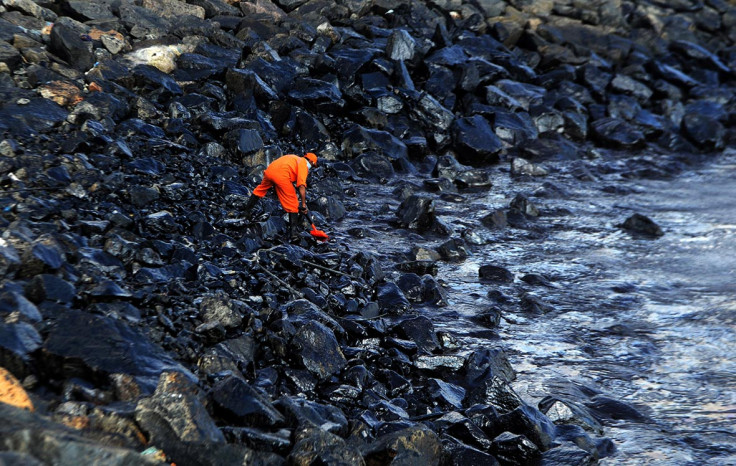Chennai oil spill clean-up nears completion as volunteers help in removing 50 tonnes of slick
Fishermen, who have been badly affected by the spill, want authorities to give top priority to their plight.

More than 50 tonnes of oil slick has been removed along the coastline in the southern Indian city of Chennai after an oil tanker collided with a cargo vessel on 28 January. The spill has been threatening marine life in the ecosystem as reports suggest that the extent of the damage was grossly underestimated.
Local volunteers, who helped authorities in the clean-up task, said at least 20 more tonnes of oil sludge still needs to be removed from the coastline. Preliminary reports released by authorities – shortly after the collision – suggested that no leaks were detected. However, it later changed the statement and said that 200 litres of oil slick found its way into the sea, which was further revised to one tonne.
Moreover, the super-sucker machines that were pressed into operations failed to work, hence the Indian Coast Guard and volunteers had to manually scoop out the slick. According to reports, there was oil floating at Thiruvanmiyur beach – located 30km from the Ennore Port where the collision occurred – five days after the incident.
More than 1,000 volunteers assisted authorities in cleaning the beaches. A statement from the coast guard read, "Around 70% of sludge removed, rest expected to be removed by this evening. Three super suction pumps deployed to remove spill... manual cleaning also in process. Tar residue collected from Marina and Elliot's Beach... situation being closely monitored and under control."
Fishermen in the area, who were badly affected following the spill have sought immediate attention from authorities.
The National Green Tribunal (NGT) – the quasi-judicial body which deals with environmental affairs – has sought an explanation from the pollution control boards of the state and central government over the incident.
© Copyright IBTimes 2024. All rights reserved.






